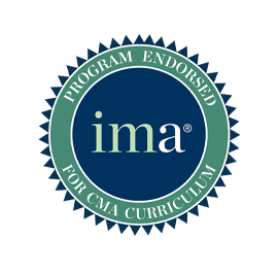Free Application Code
A $25 Value
"*" indicates required fields

Your security is our priority.
CSU Global partners with VerifiNow to verify applicant authenticity and uphold the integrity of our academic community.
Colorado State University Global
Accredited by the Accreditation Council for Business Schools & Programs (ACBSP), Colorado State University Global’s accelerated Bachelor of Science degree in accounting is a 120-credit program that prepares students for private, public, nonprofit, and governmental accounting careers.
Upon completion, students will be ready to sit for the Certified Management Accountant (CMA) exam and complete the requirements to sit for the Certified Public Accountant (CPA) exam at the graduate level.
"*" indicates required fields
Immerse yourself in real-world scenarios, case studies, and hands-on practice. Build your expertise in accounting tasks within an AI-enhanced environment by using automation, business intelligence, and data analytics to refine and optimize processes. Stay ahead of industry changes as you learn to improve accounting systems, analyze financial data, and demonstrate leadership in the ever-evolving world of AI-driven accounting.
Dual enrollment/accelerated master’s program: Undergraduate accounting majors can earn both a bachelor’s and master’s degree in a single, combined program. This dual enrollment option helps qualified students prepare for careers in accounting and may also meet the education requirements for the CPA exam and other professional licenses.
CSU Global’s Bachelor of Science accounting program is tailored for students starting their careers or considering a career change.
In addition to the comprehensive knowledge that you’ll earn through a degree, industry certifications are an excellent way to demonstrate your proficiency in a specific area. As you complete your bachelor’s degree in accounting, you’ll be prepared to take several industry-recognized exams:
As a not-for-profit public university, our goal at CSU Global is to make your online tuition cost as affordable as possible. We offer low-cost online degree tuition rates without taking anything away from the quality of the education you receive. We also lock in that low tuition rate with our tuition guarantee, and we provide additional discounted tuition rates for members of the armed forces and employees of our corporate affiliate partners.
Learn more about CSU Global tuition rates, and explore financial aid options available that can help cover the cost of your education.
Tuition cost Financial aidCSU Global’s online, ACBSP-accredited B.S. in Accounting builds knowledge in compliance, ethics, finance, marketing, and economics while offering specializations from computer programming to digital forensics and international business.
51 Credits
31 Credits
CSU Global’s General Education Courses are more than a bachelor’s degree requirement. They are designed to help you develop and strengthen valuable skills demanded in the workplace.
Already taken some courses? Up to 90 total credits (and 64 from community colleges) can be transferred into a bachelor’s degree at CSU Global. Request a Transcript Evaluation Summary to see how close you already are to graduation!
Remaining credits to reach 120 total credits
The remainder of your degree is comprised of courses of your choice that support your educational goals and needs. Including a specialization reduces the number of elective credits you’ll need to complete your bachelor’s degree.
The Accelerated Master’s Program (AMP) allows motivated accounting students to earn both a bachelor’s and a master’s degree in one streamlined program. By replacing two upper-division undergraduate courses with advanced graduate courses, students can begin earning graduate credits while completing their bachelor’s degree, setting them up for a head start on higher-level and higher-paying roles in accounting.
This program not only meets educational requirements for careers in professional accounting but may also satisfy the academic standards needed to sit for the Certified Public Accountant (CPA) exam and other licensing exams. Completing both degrees requires a total of 144 credits, with the master’s portion totaling 24 credits. While the AMP covers key requirements for the CPA exam, some students may need to complete additional courses to meet state-specific licensing requirements. Speak to your success counselor for complete program details.
Accounting positions are projected to grow 6% from 2023 to 2033, outpacing the average for all occupations. This trend reflects the essential role of accountants in every industry.
CSU Global’s B.S. in accounting alumni consistently report high employment rates in the accounting field, showcasing the real-world impact and value of our program.
According to the U.S. Bureau of Labor Statistics (BLS), the median annual wage for accountants and auditors was $81k+ in May 2024.
I wanted a B.S. accounting degree, and I had already completed 60 credits twelve years ago. I'm now a stay-at-home mom, and with the ability to transfer these credits I am on my way to finish my accounting degree.
Melissa Shields
B.S. Accounting, Class of 2021

Your Bachelor's in Accounting from CSU Global is accredited by the Accreditation Council for Business Schools and Programs.

CSU Global’s accounting program has earned endorsement by IMA® (Institute of Management Accountants), one of the most respected associations focused exclusively on advancing the management accounting profession.

U.S. News & World Report ranks CSU Global among the Top 20 Online Bachelor's Programs for 2026.

ranked CSU Global's Online Bachelor’s in Accounting Degree #2, showcasing its superior curriculum and success in preparing students for the accounting profession.
Ready to learn more about how to move forward with CSU Global? Complete the form below and we’ll be in touch to answer any questions and help you get started.
"*" indicates required fields
Institutional accreditation by the Higher Learning Commission (HLC) means your degree comes from a top-quality, trusted university.